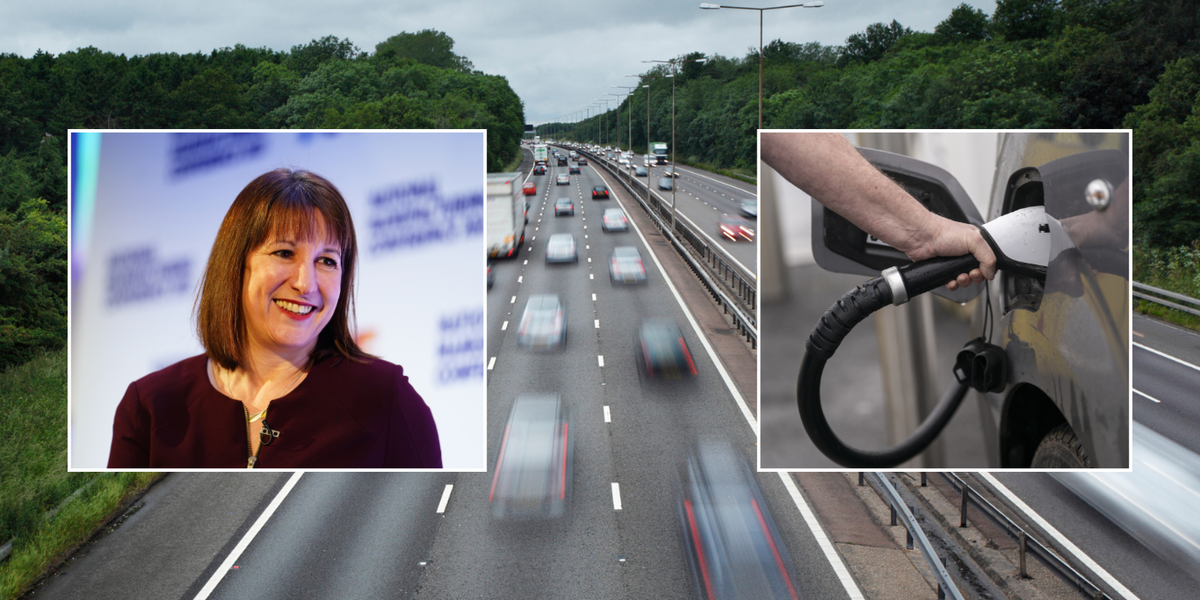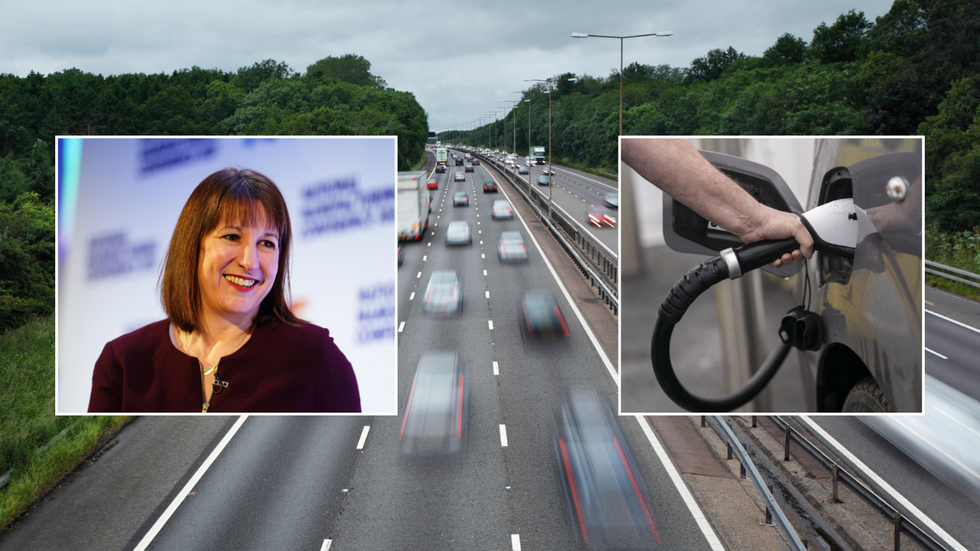



The Chancellor's car tax hikes in April have created a significant financial burden for millions of popular car owners, with experts warning it has imposed an "effective fine" of more than £360million.
The warning follows changes to the Expensive Car Supplement announced at the Autumn Budget last year by Rachel Reeves, which now applies to electric vehicles alongside conventional cars.
The ECS, also known as the luxury car tax, imposes an additional tariff of £425 on vehicles priced at more than £40,000, with electric cars previously exempt from the levy.
This has proved particularly problematic, as many electric cars are currently priced around this threshold, with drivers now backing away from certain models due to the extra tax burden.
 PA/GETTY |
PA/GETTY |
The changes to car taxes in April saw electric vehicles priced over £40,000 required to pay £425 for the first time
The Society of Motor Manufacturers and Traders (SMMT) warned that the Supplement is a key factor restraining electric vehicle adoption, describing it as a "brake on demand" at a critical juncture for the car sector.
The timing proves particularly challenging as manufacturers struggle to meet the Government’s ambitious Zero Emission Vehicle mandate, which requires at least 28 per cent of new car sales to be electric this year before moving to 100 per cent in 2035.
New data from the SMMT found that the electric car market's momentum has significantly weakened, with EV registrations expanding by just 9.1 per cent in July compared to the robust 34.6 per cent growth recorded during the first half of 2025.
The July figures represent the second-weakest monthly performance for EV growth this year, with only April showing poorer results when taxation changes disrupted normal purchasing patterns.
According to the SMMT, overall new car registrations declined by five per cent to 140,154 units, marking the weakest July performance since 2022 and falling 10.8 per cent below pre-pandemic levels from 2019.
Meanwhile, sales to private buyers decreased by 3.2 per cent, while fleet registrations dropped by 6.5 per cent. Plug-in hybrid registrations were recorded at 33 per cent with 17,489 units, while hybrids saw a drop of 10 per cent to 18,551 units.
Diesel fell by 7.9 per cent, while petrol saw one of the largest declines of 14.7 per cent from 77,702 units to 66,271 units.
However, the newly introduced Electric Car Grant hoped to add more incentives to purchasing an EV, but the SMMT said it has added further complexity to an already uncertain market, with manufacturers and consumers awaiting clarification on which models will qualify for discounts up to £3,750.
This lack of clarity has prompted potential buyers to delay purchases, creating additional headwinds for an industry already grappling with the financial impact of the luxury car tax.
Mike Hawes, chief executive of the SMMT, said: "July’s dip shows yet again the new car market’s sensitivity to external factors, and the pressing need for consumer certainty.
"Confirming which models qualify for the new EV grant, alongside compelling manufacturer discounts on a huge choice of exciting new vehicles, should send a strong signal to buyers that now is the time to switch."
Jon Lawes, managing director at Novuna Vehicle Solutions, explained that the new EV grant for models under £37,000 is welcome, but its rushed rollout and limited industry consultation have "caused confusion".
 X/DVLA |
X/DVLA |
New car tax changes were introduced in April for all vehicle owners
He warned that manufacturers are "scrambling to work out which models apply while consumers are left in limbo, wondering if they'll get up to £3,750 in savings, risking a slowdown in demand, particularly in private sales, which continue to lag behind fleets".
Despite July's disappointing performance, the SMMT has revised its full-year forecast upwards to 1.9 million units for 2025, with electric vehicles expected to capture a 23.8 per cent market share.
The year-to-date figures show the market up 2.4 per cent at 1.18 million units, including more than 250,000 battery electric vehicles, though achieving mandate targets remains challenging without comprehensive policy support.
Sue Robinson, chief executive of the National Franchised Dealers Association, added: "We are disappointed to see a reversal of the gains made in June. Looking ahead, we are likely to see continued pressure on the new vehicle market, due to weak economic growth."
